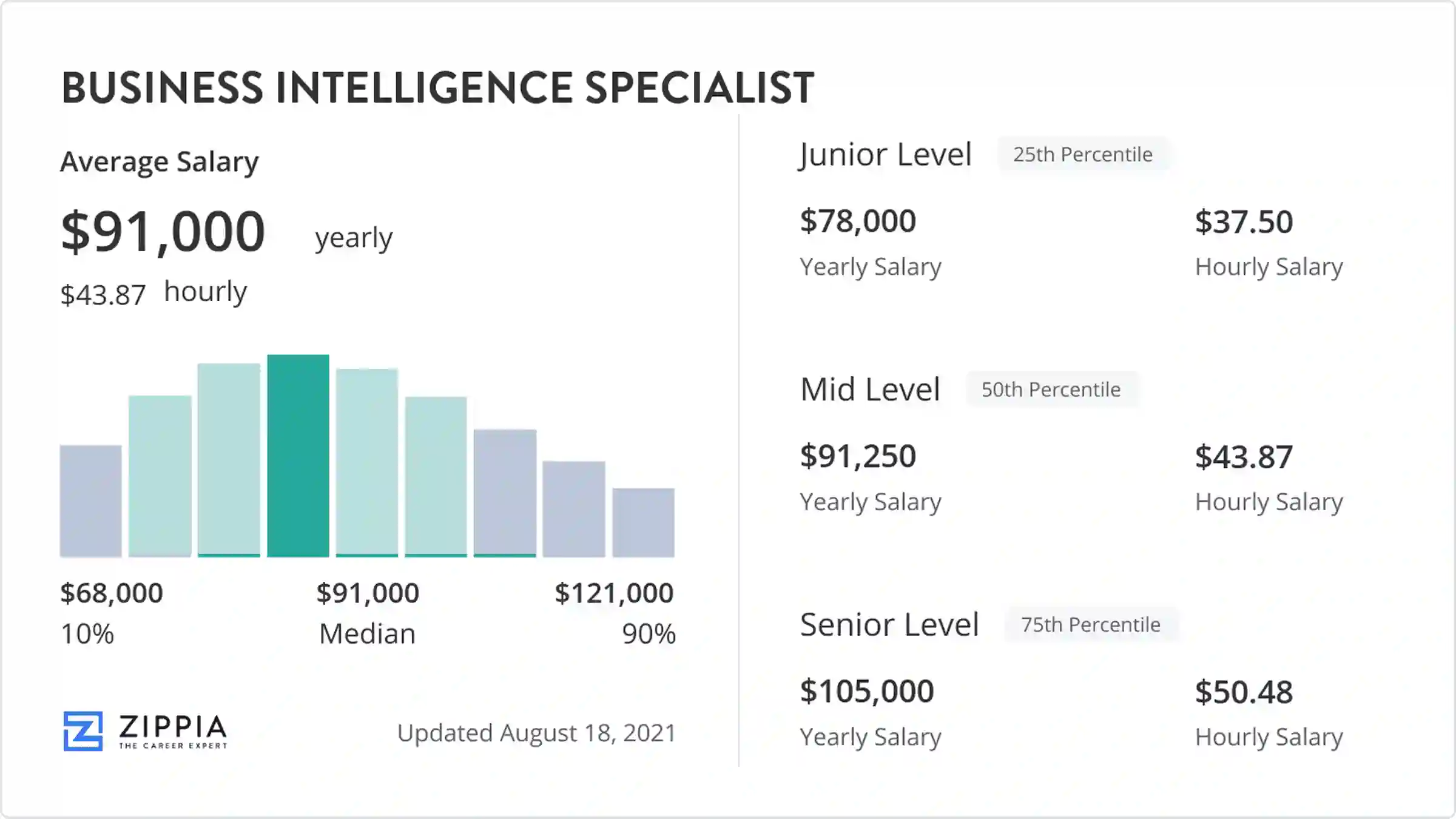As the world becomes increasingly data-driven, the demand for professionals who can extract insights from complex data sets has never been higher. Business Intelligence (BI) specialists are at the forefront of this trend, helping organizations make informed decisions by analyzing and interpreting data. In this article, we will delve into the world of BI specialist salaries, exploring the factors that influence compensation, industry trends, and what to expect in this exciting field.

What is a BI Specialist?
A BI specialist is a professional responsible for designing, implementing, and maintaining business intelligence systems. These systems help organizations analyze and visualize data to gain insights, identify trends, and make informed decisions. BI specialists work with various stakeholders to understand business requirements, develop reports and dashboards, and ensure that data is accurate, complete, and accessible.
Factors Influencing BI Specialist Salary
Several factors contribute to the determination of a BI specialist’s salary. Some of the key factors include:
- Location: Salaries can vary significantly depending on the location. Cities with a high cost of living, such as New York or San Francisco, tend to offer higher salaries to compensate for the increased expenses.
- Industry: Different industries have varying levels of demand for BI specialists. For example, finance and healthcare tend to pay higher salaries due to the sensitive nature of their data and the need for advanced analytics.
- Experience: As with most professions, experience plays a significant role in determining salary. BI specialists with more years of experience can expect higher salaries, as they bring more value to the organization.
- Education: A higher level of education, such as a master’s degree, can lead to higher salaries. Additionally, certifications like Certified Business Intelligence Analyst (CBIA) or Certified Data Analyst (CDA) can also impact compensation.
- Skills: The specific skills and tools a BI specialist is proficient in can influence their salary. For example, expertise in popular BI tools like Tableau, Power BI, or QlikView can command higher salaries.
BI Specialist Salary Ranges
According to various sources, including Glassdoor, Indeed, and LinkedIn, the average salary range for BI specialists in the United States is between $80,000 and $140,000 per year. However, salaries can vary significantly depending on the factors mentioned above. Here are some approximate salary ranges for BI specialists in different industries:
- Finance: $100,000 – $160,000 per year
- Healthcare: $90,000 – $150,000 per year
- Technology: $80,000 – $140,000 per year
- Retail: $70,000 – $130,000 per year
- Manufacturing: $60,000 – $120,000 per year
Growth Opportunities and Trends
The demand for BI specialists is expected to grow in the coming years, driven by the increasing need for data-driven decision-making. Some of the trends that will shape the BI specialist landscape include:
- Cloud-Based BI: The adoption of cloud-based BI solutions will continue to grow, offering more flexibility and scalability.
- Artificial Intelligence (AI) and Machine Learning (ML): The integration of AI and ML into BI systems will become more prevalent, enabling organizations to gain deeper insights and automate processes.
- Big Data: The increasing volume and complexity of data will require BI specialists to develop skills in big data analytics and management.
- Self-Service BI: The trend towards self-service BI will continue, enabling non-technical stakeholders to access and analyze data without relying on IT.
FAQs
- What is the average salary for a BI specialist in the United States?
The average salary range for BI specialists in the United States is between $80,000 and $140,000 per year. - What skills are required to become a successful BI specialist?
To become a successful BI specialist, you need to possess a combination of technical, business, and analytical skills, including proficiency in BI tools, data analysis, and visualization. - How do I become a certified BI specialist?
You can become a certified BI specialist by obtaining certifications like Certified Business Intelligence Analyst (CBIA) or Certified Data Analyst (CDA), which demonstrate your expertise and knowledge in BI. - What are the most in-demand industries for BI specialists?
The most in-demand industries for BI specialists include finance, healthcare, technology, retail, and manufacturing. - How can I increase my salary as a BI specialist?
To increase your salary as a BI specialist, you can develop new skills, take on additional responsibilities, or consider moving to a new organization or industry.
Conclusion
In conclusion, the salary for BI specialists can vary widely depending on factors such as location, industry, experience, education, and skills. As the demand for data-driven decision-making continues to grow, the need for skilled BI specialists will increase, driving up salaries and creating new opportunities for professionals in this field. By understanding the trends and factors that influence BI specialist salaries, you can make informed decisions about your career and take advantage of the exciting opportunities available in this field. Whether you’re just starting out or looking to advance in your career, the world of BI specialist salaries offers a wealth of possibilities for those willing to invest in their skills and knowledge.
Closure
Thus, we hope this article has provided valuable insights into The Comprehensive Guide to BI Specialist Salary: A Deep Dive into the Industry. We thank you for taking the time to read this article. See you in our next article!


